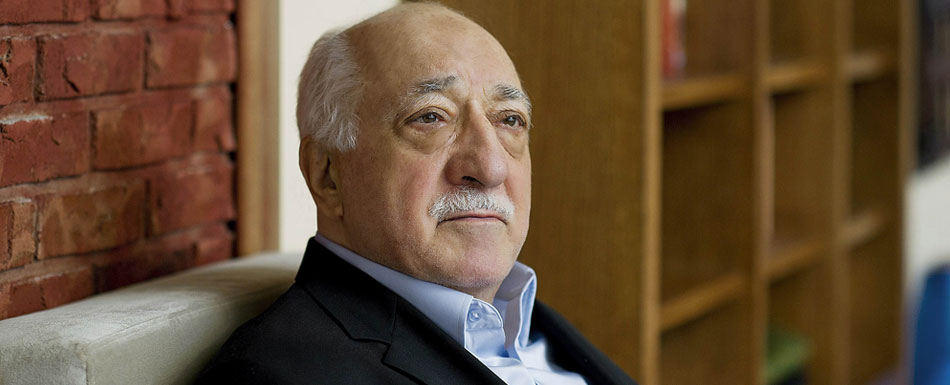What are the goals of the schools? What were they at the beginning and what are they now?

Although these questions are constantly asked, Fethullah Gülen does not show any impatience and explains:
Raising generations who take as their life principles love, peace, tolerance and intercultural dialog, who are respectful for their own national and spiritual values, who could read the world correctly, establishing bridges between these countries and Turkey as well as among themselves, and thus through these contribute to the world peace. ... The aim of opening these schools is to lessen the load on the shoulders of the state, at the same time to raise the generations who give priority to national and spiritual values, owning up to the universal values. This aim was the same at the inception of the schools and it is continuing in the same way now.[1]
There are two points worthy of consideration here. First, there is the desire to encourage the students in the schools to have an attachment to their cultures and their national values; second, there is the goal to develop manifold ties between Turkey and various countries, in order to place Turkey in the center of the alliances to be formed in the future. If both of these aims can be reconciled in a global vision, the movement’s followers believe that there are no serious obstacles to seeing the 21st century as the “Turkish Century.”
In the course of this aim, the quality of the people to open the way and the correctness of the methods chosen are important. Fethullah Gülen stresses that it is absolutely necessary for those people who would accomplish the ideal advanced here by the movement to be faithful and not to avoid any sacrifice. For this reason, Fethullah Gülen places significance on those persons having a strong faith.
He also believes that the most influential of the educational vehicles is language. Since there are various religions in the countries where the participants are present, he defends that the main bridge to carry the universal elements of Turkish culture should be language, namely Turkish. Therefore, all Gülen schools attribute a special significance to Turkish language education. Indeed, in the Turkish Olympiads held annually, the Turkish language is spoken by youth whose races, colors, religions, and nationalities are extremely diverse. Notably, their Turkish is at a higher level compared to the Turkish spoken in the less developed rural areas of Turkey.
Fethullah Gülen summarizes the matter as follows:
The business of introducing the 1000 years of culture could only be accomplished by the volunteer heroes ... by making the Turkish language a world language … If things like desiring politics or administration in the future enters into this business of education, if it is mixed with it, that would defile the matter, it would cause decadence.[2]
With this warning, he sets a limit or barrier in front of his followers in the movement—not to deviate from the course or goals set for them today.
According to Fethullah Gülen,
Everything depends on knowledge. Nothing can be done without knowledge. So much so that in the world and in Turkey, the main cause of the problems observed all the time is the neglect of an education with a sound and realistic base.[3]
For this reason, the Gülen schools take extra care to make sure that the education they provide is of the highest quality. Of course, it is indispensable that the program executed must be in accordance with the local and national ordinances. Fethullah Gülen explains,
If you do not implement whatever the curriculum of the countries where you go, would they permit you to do the things you are planning to do? Would they allow you to include Turkish in some places as an elective course and in some others as a required one? We are saying dialog and tolerance, even that is also questioned in some places, if you do not take a step towards them, you do not respect others’ laws and status, if you do not conduct yourselves as mature as to be able to share certain things with them, and then they would not come closer to you.
These are the things to be considered as facilitating our job of explaining ourselves. Otherwise, even if the organizational aspect of the matters is yours, if you retain rigidity in your behaviors, it would not be possible to explain anything to others. Expressing ourselves, contributing into the new formations in the world, is being done in order to prevent chaos that people like Huntington are predicting, through every effort within our means.[4]
Furthermore, he states,
“…education, besides being the best way of serving our country, is the way to serve the entire humanity and the most important means for a dialog in the age when our world shrunk like a small village. After all, education is a humane service for others. All humans were sent to this world in order to be perfected, to be improved through education.”[5]
Here, Fethullah Gülen is referring to Rumi, because Rumi once said, “One of my feet is on the center and the other, like a leg of a compass, in the realm of 72 nations.” Rumi was able to open the door of a dialog to anyone receptive to it.
[1] Doğu Ergil’s interview with Fethullah Gülen.
[2] Gündem 2005, 138.
[3] The interview given to Nicole Pope, Le Monde, 28 April 1998.
[4] Fethullah Gündem 2005, 139.
[5] Fethullah Gülen 2006d, 243.
- Created on .
